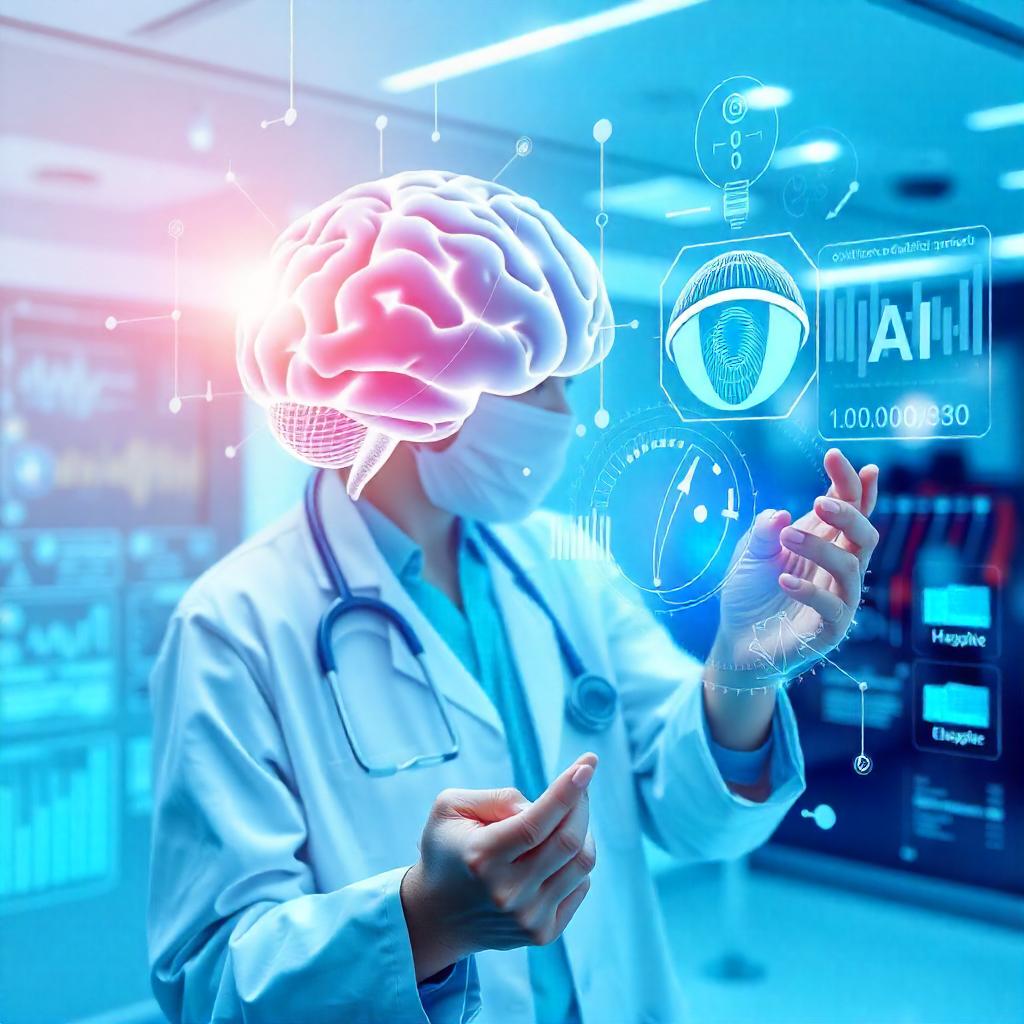The Future of AI in Healthcare:How Artificial General Intelligence in
How Artificial General Intelligence in Healthcare Will Revolutionize the World of Health Artificial General Intelligence (AGI) in healthcare is still at a distance where they assume human-like levels of intelligence and can work accordingly. Compared to the long-tailed concept of narrow AI that is aimed at solving particular tasks, Artificial General Intelligence in Healthcare (AGI) can address complicated, cross-discipline challenges in the sphere of healthcare and bring changes on this basis. Intelligent and continuous processing by Artificial General Intelligence in Healthcare (AGI) in health care can dramatically redesign diagnostic precision combined with patient’s background data, genetic records, imaging in a very large setting to deliver customized treatment. For example, AGI should be able to inform people of disease likelihood in consideration to general trends of health, the environments, and advise onitures. Also, integrated with the concept of artificial general intelligence in health care View could help organize the procedure of Artificial General Intelligence in Healthcare administrative tasks related to treatment, supply and other necessary requirements for hospital, improve the resource management, and increase the quality of patient care services. Addition of Artificial General Intelligence in Healthcare into telemedicine can help enhance the process of remote patient monitoring by increasing its smartness to allow for immediate response without straining the available health facilities. This first-level learning, of which Artificial General Intelligence in Healthcare is a pioneer, can be expected to generate a future in which healthcare becomes increasingly preventive, personal, and efficient. If citing the recent advancements in research and development, synthetic general intelligence in health care now stands ready to fill in the gaps that are besetting current global health systems and change the matter of delivery of medical services. The incorporation of Artificial General Intelligence in Healthcare(AGI) into this health care systems also holds the potential of solving the current global human professional deficit. By performing simple tasks like analyzing medical reports, sorting patients records, Artificial General Intelligence in Healthcare (AGI) frees doctors and nurses time to function in areas that require Artificial General Intelligence in Healthcare their human value namely time, emotion, and intellect. He noted this as particularly important for extended regions with inadequate access to quality health care services. With AGI, patients are likely to get the desired output in terms of consultations and Artificial General Intelligence in Healthcare recommendations, and this will bring together patient need and healthcare access. Artificial Intelligence in Healthcare: An Overview In recent years Artificial Intelligence (AI) has transformed almost all the sectors and has transformed the healthcare sector significantly. Even to present, there are many versions of Artificial General Intelligence therefore, Artificial General Intelligence in Healthcare is a revolutionary technology ambitious enough to redefine the way medical services are delivered. This blog is a comprehensive guide to understanding how AI notably AGI is redesigning the services delivery of the global healthcare industry. The Role of Artificial Intelligence in Healthcare AI in healthcare covers a broad area of activities ranging from enhancing diagnosis of a disease to valuation of patient outcome by providing predictions. As a result of this artificial intelligence powered systems can take large amounts of medical information, process that information and then come up with recommendations that the healthcare professionals can use. For example, in analysing radiology images, usage of AI results in identifying abnormalities resulting to increased accuracy. The Future of Artificial General Intelligence in healthcare(AGI) in Healthcare Healthcare AI can thus be defined as a large range of activities, from assisting in disease diagnosis and making predictions about patients’ outcomes. In the near future, with the arrival of AGI, it will be evident how healthcare systems interact with AI. Compared to the standard AI systems, AGI can accomplish any work a human brain is capable of and in the context of medicine it unveils a whole range of opportunities. One of the most significant effects of Artificial General Intelligence in Healthcare (AGI) will be seen where diagnostics is concerned. AI solutions today are already capable of analyzing massive volumes of medical data and give suggestions that are employed by the medical practitioners to arrive at a decision. However, Artificial General Intelligence in Healthcare (AGI) could go one step further and actually analyze the patient’s history, compare the symptoms and give the correct diagnosis in the absence of a specific command to do so. For instance, in radiology, the AI systems are already better placed to analyze images to find out if there are some abnormalities. Artificial General Intelligence in Healthcare (AGI) can do better than this since it can not only detect the problem but also link it closer to a patient’s genetic, lifestyle, and environmental characteristics. Furthermore, Artificial General Intelligence in Healthcare (AGI) has a possible application in the context of personalized medicine. In Artificial General Intelligence in Healthcare (AGI) system, through effective mathematical analysis of amount of genomics data, treatments can be selected suitable to any individual. Artificial General Intelligence in Healthcare This is going to change the nature of healthcare where instead of waiting for the symptoms to appear so that they can be treated, a condition that may cause poor health is first identified so that it can be prevented. This is mostly due to Artificial General Intelligence in Healthcare (AGI) abilities to collect and analyze big amount of data that will improve drug discovery processes and cut the amount of time and costs needed to create new medications. The Future of Artificial General Intelligence in Healthcare ASI or ASIH stands for Advanced Super Intelligence or Advanced General Intelligence and is a product of AI introduced to simulate and even surpass human intelligence. However, Artificial General Intelligence in Healthcare (AGI) includes the potentiality for doing various intellectual activities on par with the human brain and that within certain specified tasks, which is something completely different from current AI models that are of a considerably more narrow and staked kind. This qualitative advance is set to disrupt many industries, although the impact of disruption is expected to be most significant to the sphere of healthcare. And ranging from changing historic approaches in diagnosis arena, enhancing treatment outcomes, to providing

